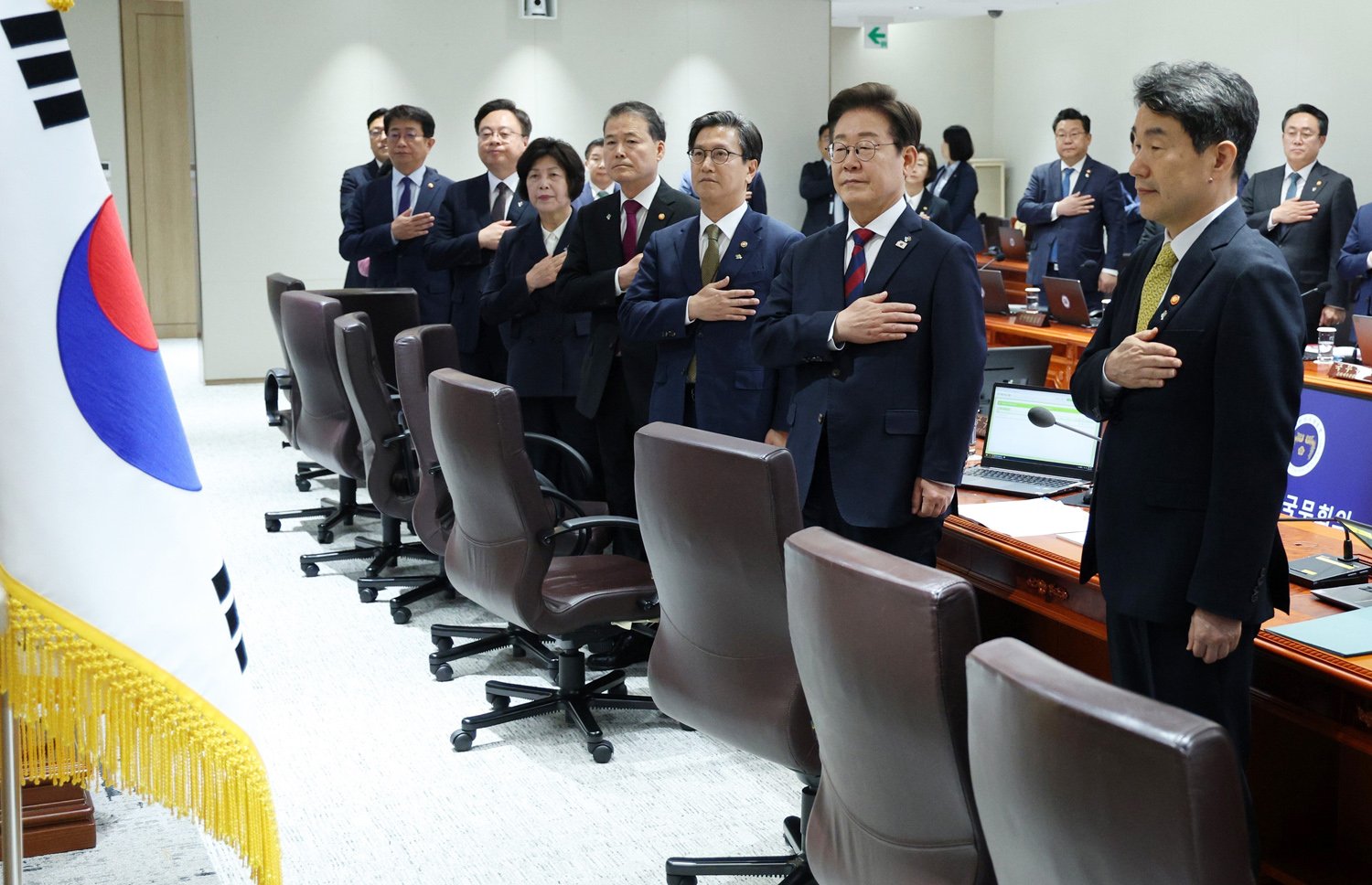
Identifying the strategic leadership capacity of senior civil servants in Korea
The current practice of operating the Korean civil service requires senior civil servants to have strategic leadership capacity with the following basic elements:
Strategic vision: Is the work Identify long-term goals, forecast socio -economic, technological, and security trends, and shape national development strategies, thereby proposing policies that both solve immediate problems and create a sustainable, long-term foundation. The strategic vision of senior Korean civil servants is demonstrated in the following abilities: (1) Trend forecasting: Analyze data, identify socio-economic, technological, environmental, and security fluctuations in the coming years (such as forecasting the impact of population aging on the labor market and social security system). (2) Select key goals that are consistent with long-term interests. (3) Shape overall strategies: Build a “big picture” that connects industry, regional, and sectoral policies (such as linking green industry development strategies with renewable energy and STEM education policies). (3) Inspiration and direction: Communicate a clear vision to mobilize consensus from the apparatus and society (e.g., the “K-Brand” campaign to enhance the national image through culture, technology, and products). (4) Flexibility and adaptation: Adjust the vision when the context changes but still maintain the core goal, such as adjusting the trade strategy when the global supply chain fluctuates.
Strategic vision is one of the “backbone” elements of leadership capacity, especially for senior civil servants, because it shapes the entire direction of the organization and the country. Without vision, leaders can easily fall into a situation of only dealing with short-term issues, lacking long-term orientation, leading to missed opportunities or slow response to change.
Policy making: Is the ability to synthesize, combine strategic thinking, scientific analysis and coordination skills to turn national vision into feasible and effective policies. This is one of the pillars of strategic leadership, which is focused on training by the National Human Resources Development Institute of Korea (NHI).
The core content of policy-making capacity includes: Context analysis and forecasting (data collection, processing, analysis of socio-economic, technological, environmental, and security trends); policy problem identification (identifying core issues, root causes, priority levels, avoiding the situation of solving individual phenomena instead of the essence); policy options development (proposing multiple scenarios, assessing costs - benefits, and social impacts); consultation and mobilization of opinions (organizing dialogues with experts, businesses, and people); referring to international experience; designing an implementation roadmap (determining goals, key performance indicators (KPIs), allocating resources, and assigning responsibilities); evaluation and adjustment (monitoring results, comparing with goals, and adjusting when necessary).
Inter-sectoral coordination: This is an important capacity of senior civil servants, requiring connection and coordination between ministries, branches, localities and the private sector, to reduce conflicts of interest and optimize resources. Inter-sectoral coordination capacity is demonstrated in the following aspects: Multi-disciplinary understanding (civil servants have a firm grasp of basic knowledge and relationships between sectors, such as economics, society, environment, security, etc.); connecting and mobilizing resources (linking ministries, branches, localities, the private sector and international organizations); establishing coordination mechanisms (building processes, inter-sectoral working groups, sharing information and responsibilities); resolving conflicts of interest (negotiating and bargaining to reconcile different goals between parties); general monitoring and evaluation (monitoring progress, evaluating coordination results, adjusting when necessary).
Decision-making in uncertain contexts: This is a key competency for senior civil servants in the modern public administration environment in Korea, aiming to maintain stability and take advantage of opportunities in a crisis. Core contents include: Identifying and analyzing risks, determining uncertain factors, assessing probability and impact; scenario thinking (developing different scenarios to respond); making quick but well-founded decisions (combining existing data with leadership experience and intuition); being flexible and adaptable (adjusting decisions when the context changes); communicating and being transparent (clearly communicating the reasons and objectives of decisions to build consensus).
Leadership in innovation and digital transformation: A must-have competency for senior Korean public officials, especially in the context of digital technology , big data, artificial intelligence (AI) and the internet of things (IoT) that are fundamentally changing the way of governance, providing public services and interacting with citizens. This competency is considered a strategic driving force to improve national governance efficiency, maintain competitiveness and meet the increasing expectations of society.
This capacity requires innovative thinking, encourages the search for new solutions, and breaks the mold in public service management and provision. At the same time, it requires civil servants to have a digital transformation vision, identify long-term goals for digitizing processes, data, and services; apply digital technology, use AI, blockchain, IoT, etc. to improve efficiency and transparency; train civil servants in digital skills and work culture in the digital environment; manage change (lead the organization to overcome resistance, adapt to new working methods); multi-sectoral and international cooperation (connect with technology enterprises, research institutes, and international organizations to deploy digital solutions).
Ability to work in foreign affairs and international cooperation: This is one of the strategic capacities of senior civil servants, helping state leaders expand their influence, mobilize international resources, and protect national interests in many fields. The core content of this capacity includes: Understanding of international law and practices, mastering treaties, agreements, diplomatic, trade, and security rules, etc.; international negotiation and bargaining skills; building and maintaining a network of partners, connecting with governments, international organizations, businesses, and research institutes; international representation and communication capabilities; multilateral and bilateral cooperation thinking, flexibly combining regional and global cooperation; mobilizing international resources, attracting capital, technology, knowledge, and high-quality human resources.
These elements are interrelated, helping senior civil servants improve their leadership and management capacity. In particular, strategic vision is the starting point, shaping the direction; policy planning and inter-sectoral coordination are the bridge, turning vision into action; decision-making in an uncertain context ensures flexibility and adaptability; leadership in innovation and digital transformation along with foreign affairs and international cooperation capabilities are the driving force to maintain competitive advantage and sustainable development.
Korea's experience in training and improving strategic leadership capacity for senior civil servants
Firstly, Korea has a network of specialized and prestigious training facilities.
The National Human Resources Development Institute (NHI) is an agency under the Ministry of Human Resources Management of Korea, playing a key role in training senior and mid-level civil servants, developing leadership capacity, public administration, and policy-making skills. The Institute organizes training programs from basic to advanced for civil servants at all levels, especially senior civil servants; potential management, building a civil service leadership team, developing strategic leadership capacity, policy thinking, organizational management and public service ethics. The training program focuses on annual mandatory training courses for senior civil servants; specialized topics on public project management, change management, digital and data skills; and situational simulation training to develop decision-making capacity in complex contexts. The highlight in the form and method of teaching is the application of learning combined with digital technology, AI, big data to improve the ability to apply in public management, cooperate with international organizations (OECD, World Bank) to update international standards.
The School of Public Policy and Management (KDI) provides in-depth postgraduate training for public leaders, focusing on economic policy and public management. Training programs include: Master of Public Policy (MPP), aiming to develop capacity for policy making, data analysis, national program management; Master of Development Studies (MDS), focusing on economic development, project management and public policy; short-term training courses for senior civil servants on digital government, AI in public policy, GovTech. The highlight is the combination of academia and practice, cooperation with government agencies and international organizations, creating conditions for civil servants to update new technology and global trends.
The Korea Institute of Public Administration (KIPA) is Korea's leading public policy research institute, affiliated with the Prime Minister's Office, specializing in strategic research on administrative reform, public administration, civil servant capacity development and policy evaluation. Training programs include: Leadership skills improvement, risk management, innovation in public management; specialized courses on e-government, digital service delivery, GovTech. KIPA regularly provides short-term training courses for senior civil servants, is a policy consulting center for state agencies, helping to link research and practice.
The Korea National Diplomatic Academy (KNDA) focuses on training diplomats, foreign policy research, and leadership development in the field of diplomacy. Diplomats are equipped with knowledge of international law, international relations, global political economy, negotiation skills, and languages; develop leadership and professional skills in the digital context; train senior diplomats in information management, policy data analysis, and the application of digital technology to diplomacy (digital diplomacy, e-government, AI in international relations); conduct strategic research on foreign policy, regional security, and important international issues, formulate diplomatic strategies, and forecast global trends.
Academies of ministries and branches: Major ministries and sectors such as the Ministry of Economy and the Ministry of Home Affairs have their own academies or training centers, focusing on professional skills, law, budget management and digital technology applications in the field of specialized management. The highlight is providing training according to public service roles, closely following work practices, combining with NHI or KDI to standardize senior leadership training.
Korea organizes international training courses and cooperation to supplement international knowledge, update digital technology trends, digital transformation in government, such as the OECD's digital government leadership program for senior civil servants, the e-government program in collaboration with the World Bank or the UN. Thereby, senior Korean civil servants have both strategic management capacity and quick adaptation to digital transformation, ensuring effective decision-making in the digital age.
Second, focus on the content of training programs for senior civil servants.
Every senior civil servant is required to participate in mandatory annual training courses, including leadership development, public management, and digital skills programs. The training courses not only update policy knowledge but also develop strategic leadership and change management capabilities in the digital environment. NHI designs specialized training programs for senior civil servants, focusing on national strategic analysis and planning, leadership in a multicultural and globalized environment, change management, and innovation. The courses combine theory, practical situations, and international exchanges, helping senior civil servants develop both strategic thinking and implementation skills, thereby improving their strategic leadership capabilities. Management skills and comprehensive capabilities help Korean senior civil servants lead administrative reform, ensure policy consistency and long-term vision, and maintain the country's position in the global competitive environment.
Third, ensure adequate and diverse funding sources for training.
The funding structure for civil servant training in Korea includes the central budget, the budget of the sending agency, funding from businesses/private sectors and international cooperation. Of which, the source from the central budget accounts for the majority (50 - 60%), ensuring compulsory basic and advanced courses. In the period 2020 - 2023, each year, the central budget will provide NHI with about 28 - 30 million USD for civil servant training.
The budget source of the sending agency accounts for about 15-20%, focusing on the professional needs of each ministry. In the period of 2020-2023, each year, the Ministry of the Interior and Safety of Korea (MOIS) spends about more than 3 million USD on civil servant training. Corporate/private sponsorship and international cooperation account for about 15%, playing an important role in digital leadership courses, AI, and digital government. Large Korean corporations, such as LG, Samsung, and SK, actively sponsor training programs for central and local civil servants in the Korean civil service system. The funding source for training from many different partners and entities reflects diversity and flexibility, helping Korea train senior civil servants to meet the requirements of the Fourth Industrial Revolution and digital transformation, while applying international standards.
Some suggestions for Vietnam
Firstly, strategic awareness of training of cadres and civil servants is an investment in long-term sustainable national development.
The experience of Korea shows that training civil servants is not only an administrative task but also a national resource development strategy. Training needs to be linked to the national vision of green growth, digital government and global competitiveness. Vietnam needs to identify the training and development of civil servants, especially leaders, managers and strategic staff, as a strategic investment for the future, and resources must be allocated appropriately. The role of senior leaders, managers and strategic staff is extremely important, as they are the final decision makers, approvers or direct decision makers of strategic decisions. They hold and use aggregated data (public and confidential) from many ministries, branches, experts and international information. A decision at a high level will spread down the entire political system and impact all aspects of social life.
Second, build training strategies and plans according to the competency framework.
Korea builds a civil servant competency framework for each position, level and field, as a basis for designing training programs. Training plans are built annually, adjusted according to technology trends and national policies.
Vietnam needs to build a standardized competency framework for each civil servant from the grassroots to the intermediate and senior levels, from which to design appropriate training programs. Develop a comprehensive strategy to develop the capacity of strategic staff, leaders and managers in the political system, including the Central Party's departments and agencies. This is a vital factor in building and promulgating resolutions, decisions and regulations to meet the requirements of the new era. Concretize them into practical training and development plans and programs, focusing on training strategic leaders with the ability to plan policies, manage public affairs and adapt to the globalized environment.
The content of the training and development program for cadres needs to meet the requirements of digital transformation, such as e-government, big data, AI in public management, digital skills, technology thinking, cybersecurity, innovation management, leadership in the digital environment. Refer to and apply combined training methods such as online learning, simulation, case practice, project-based learning, etc.
Third, organize feasible implementation, establish quality control system
Promote the role and responsibility of training institutions in the political system assigned to perform the function of training and fostering cadres. In particular, the Ho Chi Minh National Academy of Politics proactively improves the quality of training and fostering, worthy of being the national center for training and fostering leaders and middle and senior managers for the Vietnamese political system. Develop and promulgate output standards for each training program, based on the competency framework for cadres and civil servants according to new requirements, meeting the requirements of the era of rising up in the context of digital transformation and comprehensive and deep international integration. In addition, a number of training institutions under departments, ministries and branches need to develop programs to foster in-depth expertise, capacity and working skills in the digital environment, the international environment so that cadres and civil servants can perform well in their work.
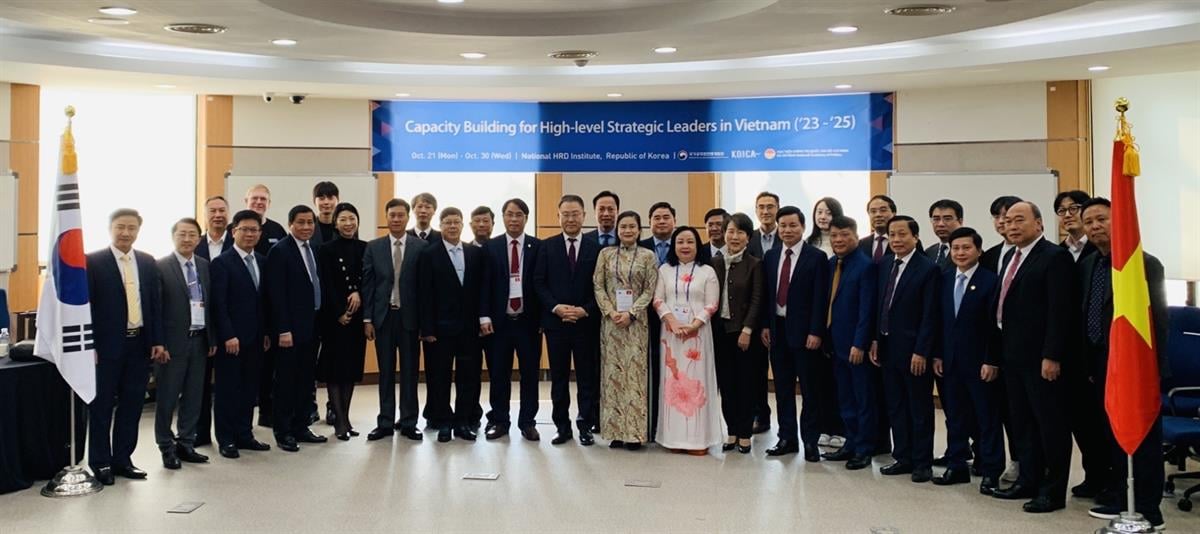
The success of Korea suggests some lessons for Vietnam on combining in-person and online training, creating conditions for officials and civil servants to study anytime, anywhere, lifelong learning. Research and build a national E-learning platform for officials and civil servants, integrating digital libraries, video lectures, discussion forums... Apply a blended learning model to ensure flexibility while maintaining direct interaction. Use learning data to analyze and personalize the training and development roadmap for each official and civil servant.
Linking training and development with assessment and consideration of staff appointments: Training and development are only truly valuable when learning outcomes are reflected in public service assessments and career paths. It is necessary to stipulate that completing a number of mandatory training courses is a prerequisite for consideration of promotion and appointment, such as leadership capacity, public management, digital skills, political theory, etc. Learning outcomes are included in the annual staff assessment records. Develop regulations to encourage staff and civil servants to proactively study and self-study through a point-adding mechanism, giving priority in consideration of appointment to higher positions.
Building a system for assessing the quality of training and fostering cadres and civil servants: A well-organized training strategy has a quality assessment system to ensure effectiveness, transparency and continuous improvement. Korea has established a strict, independent and highly effective assessment mechanism. Vietnam can learn from this in the direction of establishing a set of assessment standards, including: (i) Content standards: Up-to-date, consistent with the competency framework and practical requirements; (ii) Method standards: Applying active, learner-centered teaching methods; (iii) Lecturer standards: Professional qualifications, pedagogical skills, practical experience; (iv) Infrastructure and technology standards: Classroom infrastructure, equipment, online platforms, information technology, AI. (v) Output standards: Level of competency attainment, ability to apply to work.
Fourth, mobilize resources and cooperate internationally effectively.
In addition to domestic state budget resources to ensure training and fostering of cadres and civil servants, Vietnam needs to proactively and actively attract international cooperation resources, corporate sponsorship and ODA programs. International cooperation helps Vietnamese cadres and civil servants increase their integration capacity, access advanced knowledge and management technology, learn e-government models, data management, and institutional reform from advanced countries in the world; be equipped with policy analysis skills, strategic leadership, and international project management, thereby improving public service efficiency, contributing to increasing national prestige and position./.
Source: https://tapchicongsan.org.vn/web/guest/the-gioi-van-de-su-kien/-/2018/1163902/phat-trien-nang-luc-lanh-dao-chien-luoc-cho-cong-chuc-cap-cao-o-han-quoc-va-nhung-goi-mo-cho-viet-nam.aspx














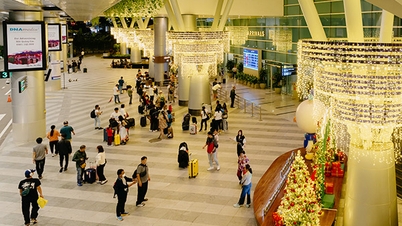





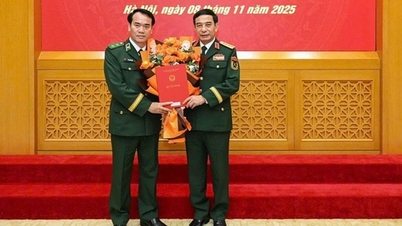


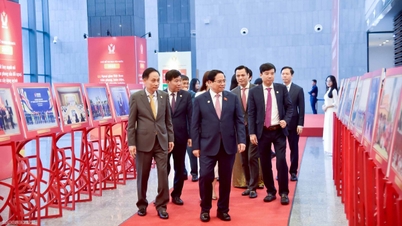

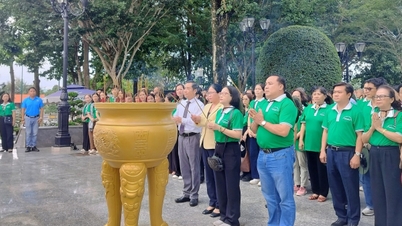

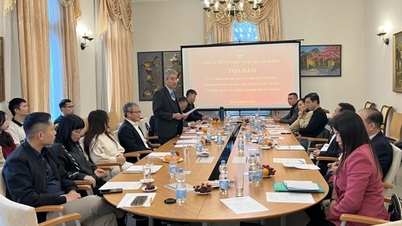






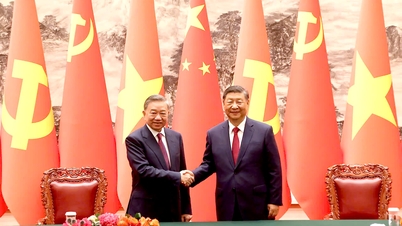

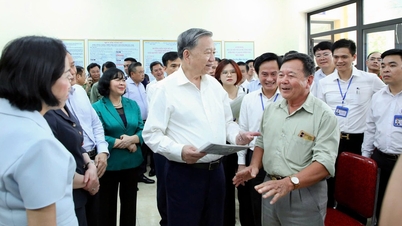






































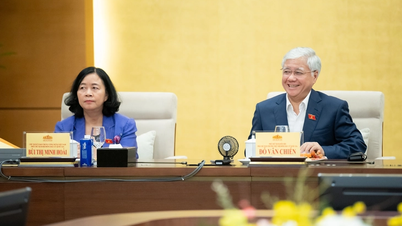









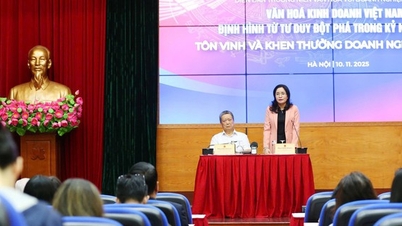
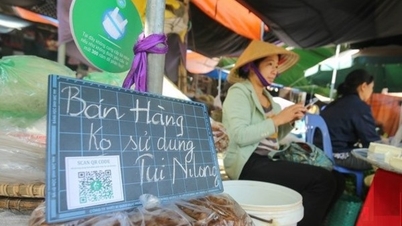







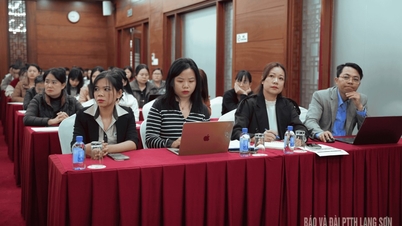


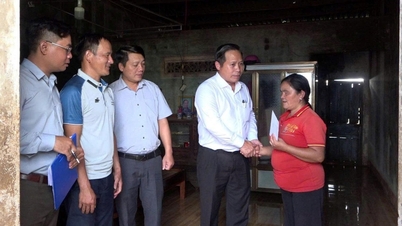



![Dong Nai OCOP transition: [Article 3] Linking tourism with OCOP product consumption](https://vphoto.vietnam.vn/thumb/402x226/vietnam/resource/IMAGE/2025/11/10/1762739199309_1324-2740-7_n-162543_981.jpeg)










Comment (0)